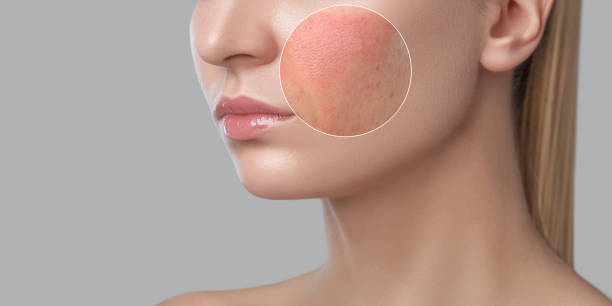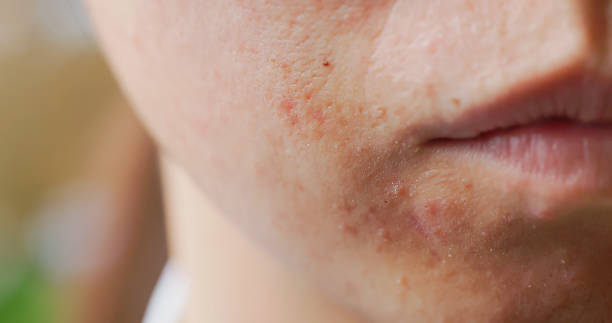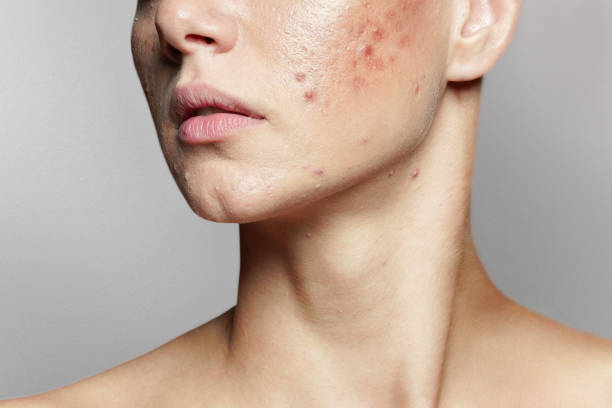Skin inflammation can leave your face feeling irritated, red, and uncomfortable. Whether it’s due to an allergic reaction, a particular skin condition, or overexposure to harsh environmental conditions, calming your inflamed skin is essential for keeping it healthy. This article explores various home remedies and simple lifestyle changes that can provide relief and prevent future flare-ups. From gentle cleansing techniques to natural anti-inflammatories, learn how to soothe your inflamed facial skin effectively at home.
Recognizing Signs of Inflamed Facial Skin

If you notice that your skin is persistently red, itchy, or exhibiting signs of discomfort, you might be dealing with inflamed facial skin. Before turning to home remedies, it’s critical to understand these symptoms so you can address them properly. Signs like swelling, sensitivity to products, and a burning sensation are often indications of inflammation. When these symptoms exceed what is normal for your skin type or linger for an extended period, seeking advice from a dermatologist is advisable.
Gentle Cleansing to Lay the Foundation

The first step in calming your skin is to adopt a gentle cleansing routine. A mild cleanser can wash away impurities without stripping your skin of its natural oils, which is crucial when it’s inflamed. Avoid using hot water as it can exacerbate irritation; instead, opt for lukewarm water. Pat your face dry with a soft towel to prevent further inflammation. This foundational step sets the stage for the effectiveness of the home remedies that follow.
Home Remedies for Immediate Relief
When it comes to immediate relief, several home remedies can be highly beneficial:
- Cool Compresses:Applying a cool, damp cloth to the affected area can reduce swelling and provide quick relief. It constricts blood vessels temporarily, reducing the appearance of redness.
- Aloe Vera:Known for its anti-inflammatory properties, aloe vera can be used to soothe and moisturize inflamed skin. Apply it directly to the face and let it sit for a few minutes before rinsing.
- Oatmeal Masks:An oatmeal mask can calm irritation due to its anti-inflammatory and soothing properties. Grind plain oatmeal, mix with water to form a paste, and apply it to your face for 10-15 minutes before washing off gently with cool water.
Natural Anti-inflammatories in Your Kitchen
Your kitchen might hold the key to reducing facial inflammation. Here are some natural ingredients with soothing properties:
- Honey:As a natural humectant and anti-inflammatory, honey can be applied directly onto the skin to reduce redness and soothe irritation.
- Green Tea:Rich in antioxidants, green tea can be brewed, cooled, and then used to rinse your face or as a compress to comfort your skin.
Long-term Strategies to Prevent Recurring Flare-Ups
Reducing inflammation is not only about quick fixes but also involves long-term care and prevention. Ensuring you drink enough water throughout the day helps maintain your skin’s moisture barrier. Incorporating anti-inflammatory foods like fish rich in omega-3 fatty acids, berries, nuts, and leafy greens into your diet can have a positive effect. Additionally, minimizing stress through yoga, meditation, or other relaxation techniques can prevent hormonal imbalances that may trigger skin issues.
Products to Avoid When Managing Inflamed Skin
When dealing with inflamed skin, it’s essential to avoid certain products that can exacerbate irritation and worsen the condition. Here are some products to steer clear of:
- Fragranced Skincare:Fragrances, whether synthetic or natural, can be irritating to inflamed skin. Avoid products with added fragrances, including perfumes, essential oils, and heavily scented moisturizers.
- Alcohol-Based Products:Alcohol-based toners, astringents, and cleansers can strip the skin of its natural oils and cause further dryness and irritation. Look for alcohol-free alternatives that are gentle and soothing.
- Harsh Exfoliants:Avoid abrasive scrubs, peels, and exfoliating brushes that can aggravate inflamed skin and cause micro-tears. Opt for gentle exfoliants with soft beads or chemical exfoliants like lactic acid or salicylic acid.
- Acne Treatments:While acne treatments containing ingredients like benzoyl peroxide or salicylic acid can be effective for treating acne, they can also be harsh and drying on inflamed skin. Use them sparingly and consider consulting a dermatologist for alternative options.
- Hot Water:Hot water can further irritate inflamed skin and strip away its natural oils. Instead, wash your face with lukewarm or cool water and avoid prolonged exposure to hot water in showers or baths.
- Heavy Makeup:Heavy, oil-based makeup can clog pores and worsen inflammation. Opt for lightweight, non-comedogenic formulas that allow the skin to breathe and won’t exacerbate existing skin issues.
Conclusion
Calm, healthy-looking skin is attainable with the right home remedies and lifestyle alterations. While instant relief is essential, a long-term approach towards skincare and general well-being is just as crucial. Patience and diligence will go a long way in maintaining the health of your inflamed skin. Remember, what works for one person may not work for another, so it’s essential to listen to your skin and adjust your routine accordingly.
FAQs
| Question | Answer |
|---|---|
| Can diet really affect inflammation in the skin? | Yes, consuming an anti-inflammatory diet can significantly affect your skin’s health by reducing inflammation and improving your overall complexion. |
| How often should I apply a cool compress to inflamed skin? | You can apply a cool compress several times a day for 15-20 minutes each time, as needed to alleviate discomfort and reduce redness. |
| Is it safe to use aloe vera gel directly from the plant on my face? | Yes, using aloe vera directly from the plant is safe for most people. However, always do a patch test first to ensure you do not have a sensitivity or allergic reaction to it. |
| Why should I avoid certain skincare products if I have inflamed skin? | Certain skincare products contain harsh ingredients that can further irritate and inflame sensitive skin. It’s best to use gentle, formulated products suitable for sensitive and inflamed skin. |
| How can stress management improve the condition of my skin? | Stress management can lead to a reduction in cortisol levels, a hormone that can trigger skin inflammation, thereby improving the condition and appearance of your skin. |
